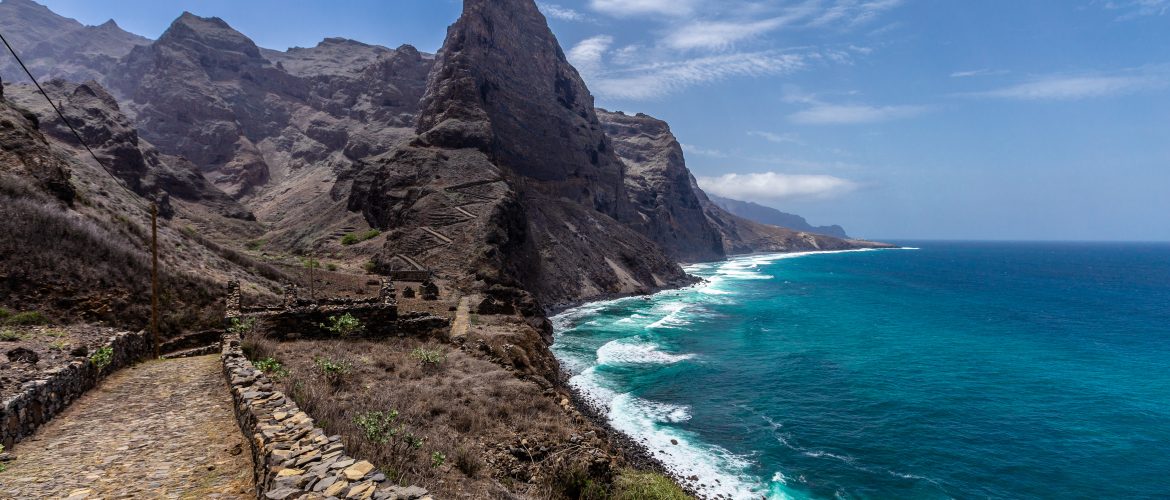Cabo Verde, being a Small Island Developing State (SIDS) within Sub-Saharan Africa, is prone to a growing vulnerability towards environmental and economic instabilities. Under the Cabo Verde’s Strategic Plan for Sustainable Development 2017-2021 (PEDS), the Government of Cabo Verde establishes the development targets for the period 2017-2021, including to make Cabo Verde’s economy circular and to ensure economic and environmental sustainability as two of their main objectives. This national strategy further classifies tourism as one of the main pillars of the Cabo Verdean economy, directly accounting for at least 24% of the country’s GDP, 10% of formal employment, and the majority of Cabo Verde’s Foreign Direct Investment (ITA, 2022).
Cabo Verde has also developed a Grand Strategic Plan Options for Sustainable Tourism Development for 2018-2030 (GOPEDS-Tourism 2018-2030), identifying sectors that are strongly interlinked with the tourism and hotel industry. Whereas tourism contributes to only 10% of the GHG emissions of Cape Verde directly, the sector is heavily reliant on other sectors and supply chains that are major drivers of GHG emissions such as water desalination, electricity, food production, waste management, etc.
Hence, as part of efforts to successfully address the existing national commitments, the country’s National Designated Authority (NDA) and the Ministry of Tourism and Transport requested the support for a GCF Country Programme development and a programmatic sustainable tourism planning. The proposed Readiness Programme seeks to identify climate change priorities, including a pipeline of projects that the country seeks to develop with GCF. See here the full Readiness Proposal:
The provision of services related to Green Climate Fund Readiness activities under the project “Country programming support and sustainable tourism planning for Cabo Verde” is SETIN’s responsibility in Joint Venture with PD Consult (leader) and University of Surrey, and in collaboration with United Nations Industrial Development Organization (UNIDO).
Our main responsibilities are:
- Provide contributions to the project design and final methodology (inception report);
- Team Leader for train-the-trainer workshop in evaluating financial feasibility of circular and sustainable tourism interventions;
- Review and comment the analysis of the Regulatory Framework;
- Contributions to the GCF Country Programme;
- Contribution to the identification of national programming priorities and develop a pipeline of prioritized adaptation and mitigation activities;
- Team Leader for development of 4 GCF (Green Climate Fund) project concept notes;
- Participation in workshops.


